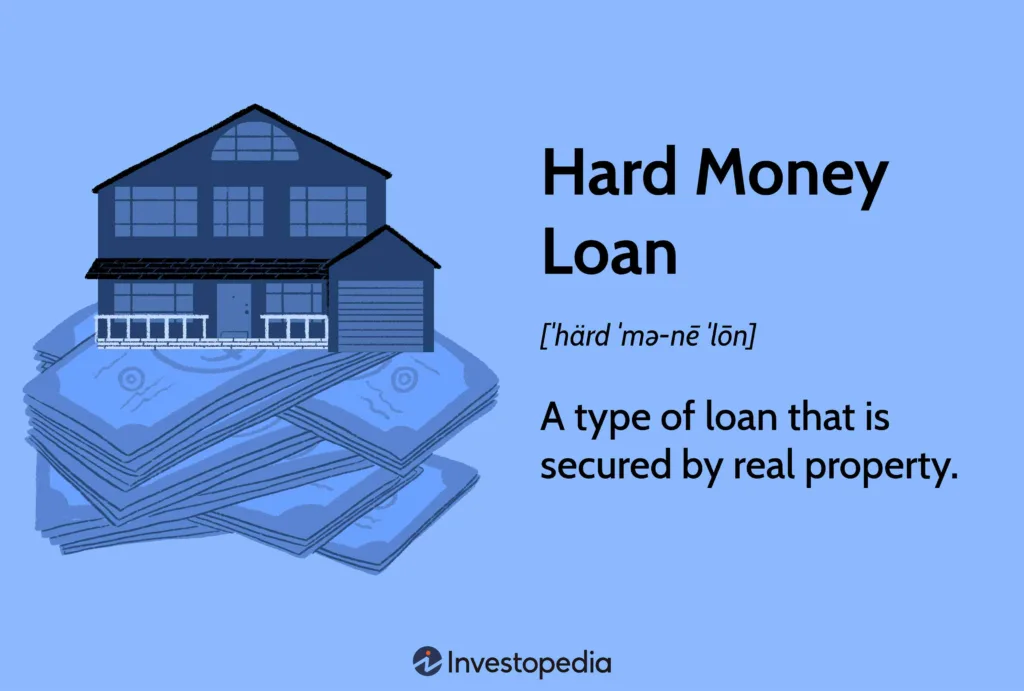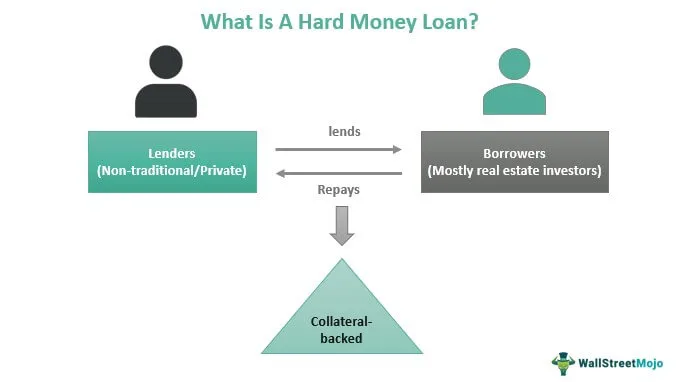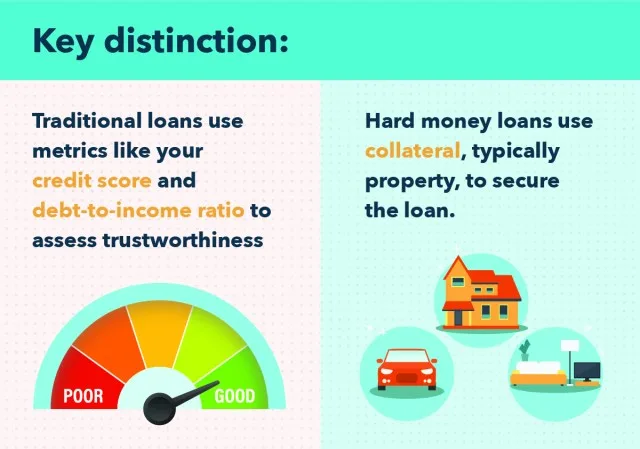In the world of real estate investing, hard money lenders have emerged as a popular financing option for those seeking quick and flexible funding. However, a burning question often arises among potential borrowers: do hard money lenders take into account their income? This article aims to shed light on this crucial aspect of hard money lending, exploring whether a borrower’s income holds significance in the eyes of these unique lenders. By examining the considerations that hard money lenders typically weigh when evaluating loan applications, we will uncover the truth behind the role of income in this alternative financing landscape.

Overview of Hard Money Lenders
Definition of Hard Money Lenders
Hard money lenders are private individuals or companies that provide short-term loans that are backed by real estate collateral. Unlike traditional lenders such as banks or credit unions, hard money lenders focus more on the value of the property being used as collateral rather than the borrower’s creditworthiness. These loans are typically used for real estate investments, where speed and flexibility are of utmost importance.
Purpose of Hard Money Loans
The purpose of hard money loans is to facilitate real estate investments by providing quick access to capital. Traditional lenders often have lengthy approval processes, which can delay real estate transactions. Hard money loans, on the other hand, can be approved and funded within a matter of days, allowing investors to take advantage of time-sensitive opportunities. These loans are commonly used for fix-and-flip projects, where investors purchase distressed properties, renovate them, and then sell them at a profit.
Advantages and Disadvantages of Hard Money Loans
Hard money loans offer several advantages compared to traditional loans. One major advantage is the speed at which these loans can be funded. Investors can secure financing quickly, allowing them to act swiftly in competitive real estate markets. Additionally, hard money lenders are primarily concerned with the value of the property, rather than the borrower’s credit history, making these loans accessible to individuals with poor credit.
However, there are also disadvantages to hard money loans. The interest rates on these loans are typically higher than those offered by traditional lenders, reflecting the increased risk taken on by hard money lenders. Furthermore, hard money loans often come with shorter repayment terms, usually ranging from six to 24 months. This can increase the financial burden on borrowers, as they may need to make larger monthly payments compared to a long-term loan.
Factors Considered by Hard Money Lenders
Collateral
One of the primary factors considered by hard money lenders is the collateral offered by the borrower. Since these loans are secured by real estate, the value and condition of the property are crucial. Hard money lenders typically require a property appraisal to determine its current market value. The collateral acts as a safety net for the lender, as they can recover their investment by selling the property if the borrower defaults on the loan.
Loan to Value Ratio
The loan to value (LTV) ratio is another important factor for hard money lenders. This ratio represents the percentage of the property’s value that the lender is willing to lend. Hard money lenders typically offer LTV ratios ranging from 50% to 70%, meaning they will not lend more than 50% to 70% of the property’s value. This ensures that the lender has a reasonable level of protection in case of default.
Credit History
While hard money lenders are less concerned about credit history compared to traditional lenders, they still take it into consideration. A borrower’s credit history can provide additional insights into their financial responsibility and ability to repay the loan. However, even individuals with poor credit can qualify for a hard money loan if the value of the collateral is significant enough.
Debt-to-Income Ratio
Although hard money lenders primarily focus on the collateral, they may also consider a borrower’s debt-to-income (DTI) ratio. This ratio compares the borrower’s monthly debt payments with their monthly income. A lower DTI ratio indicates better financial stability and a higher likelihood of being able to repay the loan. However, hard money lenders are generally more lenient when it comes to DTI ratios compared to traditional lenders.
Experience and Expertise
Hard money lenders often evaluate the borrower’s experience and expertise in real estate investing. They may consider factors such as the borrower’s track record, past successes, and knowledge of the market. This information gives lenders more confidence in the borrower’s ability to successfully complete the project and repay the loan.
Exit Strategy
Another critical factor considered by hard money lenders is the borrower’s exit strategy. Lenders need to assess how the borrower plans to repay the loan once the term is up. This could involve selling the property, refinancing with a traditional lender, or using funds from another project. A well-thought-out and realistic exit strategy demonstrates the borrower’s preparedness and increases their chances of loan approval.
Importance of Borrower’s Income
Determining Loan Repayment Capacity
While hard money lenders are primarily concerned with the collateral, the borrower’s income can still play a crucial role in determining their loan repayment capacity. Even though these loans are short-term and often rely on the property’s value, a borrower’s income can provide an additional layer of security for the lender. It shows that the borrower has a steady stream of income to cover loan payments, especially if unexpected circumstances arise.
Assessing Borrower’s Financial Stability
A borrower’s income also provides insight into their overall financial stability. It helps lenders evaluate the borrower’s ability to manage their finances and meet their financial obligations. By considering the borrower’s income, hard money lenders can gain a better understanding of the borrower’s financial situation and make a more informed lending decision.
Potential Impact on Loan Approval
In some cases, a borrower’s income can make a significant difference in loan approval. Although hard money lenders prioritize collateral, a borrower with a higher income may be perceived as less of a risk. This can increase the likelihood of loan approval, especially if the borrower’s income demonstrates a strong ability to make loan payments.
Types of Hard Money Loans
Commercial Hard Money Loans
Commercial hard money loans are specifically designed for financing commercial properties such as office buildings, retail spaces, and industrial warehouses. These loans are often used by business owners and investors looking to acquire or renovate commercial properties. Commercial hard money loans typically have higher loan amounts and may have additional requirements compared to residential loans.
Residential Hard Money Loans
Residential hard money loans are used to finance properties primarily intended for residential use, including single-family homes and multi-family units. These loans are popular among real estate investors who specialize in residential properties. Residential hard money loans can be used for various purposes, such as purchasing distressed properties, financing renovations, or covering the down payment on another property.
Fix and Flip Loans
Fix and flip loans are a specific type of hard money loan used for purchasing and renovating properties with the intention of quickly reselling them for a profit. These loans are designed to provide funding for the acquisition of the property and the costs associated with its rehabilitation. Fix and flip loans are often short-term, allowing investors to complete the project and sell the property within a specific timeframe.
Bridge Loans
Bridge loans are short-term loans used to bridge the gap between the purchase of a new property and the sale of an existing property. These loans are commonly used by homeowners who are in the process of selling their current home and need funds to purchase a new one. Bridge loans can provide borrowers with the necessary capital to secure the new property while waiting for the sale of their existing property to finalize.

Understanding Hard Money Loan Process
Application and Documentation
The first step in obtaining a hard money loan is the application process. Borrowers need to complete an application form provided by the lender and submit the necessary documentation. The required documentation may include personal identification, proof of income, bank statements, and the contract or purchase agreement for the property being used as collateral.
Property Appraisal
After the application and documentation are received, the lender will conduct a property appraisal to determine its current market value. This appraisal is essential in determining the loan amount that can be offered by the lender. The appraisal is typically performed by a qualified professional who assesses the property’s condition, location, and market value.
Approval and Funding
Once the property appraisal is completed, the lender will evaluate the borrower’s application and documentation. If the lender determines that the collateral and borrower meet their criteria, they will approve the loan and provide the borrower with the loan terms, including the interest rate and repayment period. Once the borrower accepts the terms, the lender will fund the loan, providing the borrower with the necessary capital to proceed with their real estate investment.
Loan Repayment
Hard money loans often have shorter repayment terms compared to traditional loans. Borrowers are typically required to make monthly interest payments throughout the duration of the loan. However, some lenders may offer interest-only loans, where the borrower only pays the interest until the loan term ends. At the end of the term, the borrower needs to repay the remaining principal balance or refinance the loan with another lender.
Factors Typically Overlooked by Hard Money Lenders
Borrower’s Income
While some hard money lenders may consider a borrower’s income, it is not always a top priority. Since hard money loans are primarily secured by collateral, lenders often focus more on the value and condition of the property. This allows borrowers with lower incomes or non-traditional income sources to still qualify for a loan based on their collateral.
Traditional Employment History
Similarly, hard money lenders may not place as much importance on a borrower’s traditional employment history as traditional lenders do. This is because hard money loans are typically used for real estate investment purposes, and the focus is on the value and potential profitability of the property being financed.
Tax Returns
Unlike traditional lenders who often require tax returns as part of the application process, hard money lenders may not always request this documentation. Since hard money loans prioritize collateral, lenders may not consider tax returns as a significant factor in their decision-making process.
Verification of Assets
While traditional lenders may require borrowers to provide extensive documentation to verify their assets, hard money lenders may not place as much emphasis on this aspect. The collateral offered by the borrower is usually sufficient to secure the loan, and lenders may not require additional verification of the borrower’s assets.

Reasons for Overlooking Borrower’s Income
Focus on Collateral
The primary reason why hard money lenders may overlook a borrower’s income is their heavy reliance on collateral. Hard money loans are backed by real estate, and the value of the property serves as the primary determining factor for loan approval. As long as the property has sufficient value, the borrower’s income becomes less significant in the evaluation process.
Short-Term Nature of Hard Money Loans
Hard money loans are typically short-term in nature, with repayment terms ranging from six to 24 months. This short timeframe reduces the lender’s exposure and risk compared to long-term loans. Therefore, hard money lenders may be more focused on the property’s potential to generate income or appreciation rather than the borrower’s long-term income stability.
Expediting Loan Approval Process
The primary advantage of hard money loans is the quick approval and funding timeline they offer. By placing less emphasis on a borrower’s income, hard money lenders can streamline the loan approval process. This allows borrowers to secure financing rapidly, enabling them to take advantage of time-sensitive investment opportunities.
Importance of Other Factors Considered by Hard Money Lenders
Collateral Value
Although the borrower’s income may not be a top priority for hard money lenders, the value of the collateral is vital. The collateral serves as security for the lender in case the borrower defaults on the loan. Lenders assess the property’s value based on its current market worth and the potential for appreciation.
Equity in Property
Hard money lenders often consider the borrower’s equity in the property. Equity represents the difference between the property’s value and the outstanding loan balance. Lenders prefer borrowers with a higher equity stake, as it reduces the lender’s risk and incentivizes the borrower to make timely payments.
Exit Strategy
The borrower’s exit strategy is crucial to hard money lenders. Lenders need assurance that the borrower has a clear plan to repay the loan once the term is up. This could involve selling the property, refinancing with a traditional lender, or using funds from another project. An effective exit strategy demonstrates the borrower’s preparedness and increases the lender’s confidence in loan repayment.
Borrower’s Experience and Track Record
The borrower’s experience and track record in real estate investing play a significant role in the evaluation process. Hard money lenders assess the borrower’s past successes, knowledge of the market, and ability to complete similar projects. This information helps lenders gauge the borrower’s competency and likelihood of successfully repaying the loan.

Situation Dependent Consideration of Borrower’s Income
Supporting Evidence of Income
While a borrower’s income may not be a primary consideration, certain situations may warrant its evaluation. For example, if the borrower has a low credit score or a higher debt-to-income ratio, providing supporting evidence of a stable income can help mitigate the lender’s concerns. This could include employment contracts, bank statements, or other sources of income.
Types of Hard Money Lenders
Different hard money lenders may have varying criteria and preferences. Some lenders may place more importance on a borrower’s income, especially if their lending guidelines align more closely with traditional lenders. It is essential for borrowers to research and understand the specific requirements and preferences of different hard money lenders before applying for a loan.
Risk Assessment
In certain cases, hard money lenders may consider a borrower’s income as part of their overall risk assessment. While collateral remains the primary focus, a higher income may offset other risk factors in the borrower’s profile. Lenders may be more willing to lend to borrowers with a solid income to minimize the risk of default.
Conclusion
In the world of real estate investing, hard money lenders provide a valuable source of financing for investors seeking quick access to capital. While the borrower’s income may not be the most critical factor in the decision-making process for hard money lenders, it can still play a role in determining loan repayment capacity and overall financial stability. Factors such as collateral value, equity in the property, and the borrower’s experience are typically given more weight by hard money lenders. Nonetheless, the consideration of a borrower’s income can vary depending on the situation, the type of hard money lender, and the overall risk assessment. By understanding the factors considered by hard money lenders and the importance of a borrower’s income, individuals can navigate the hard money loan process more effectively and make informed decisions about their real estate investments.




